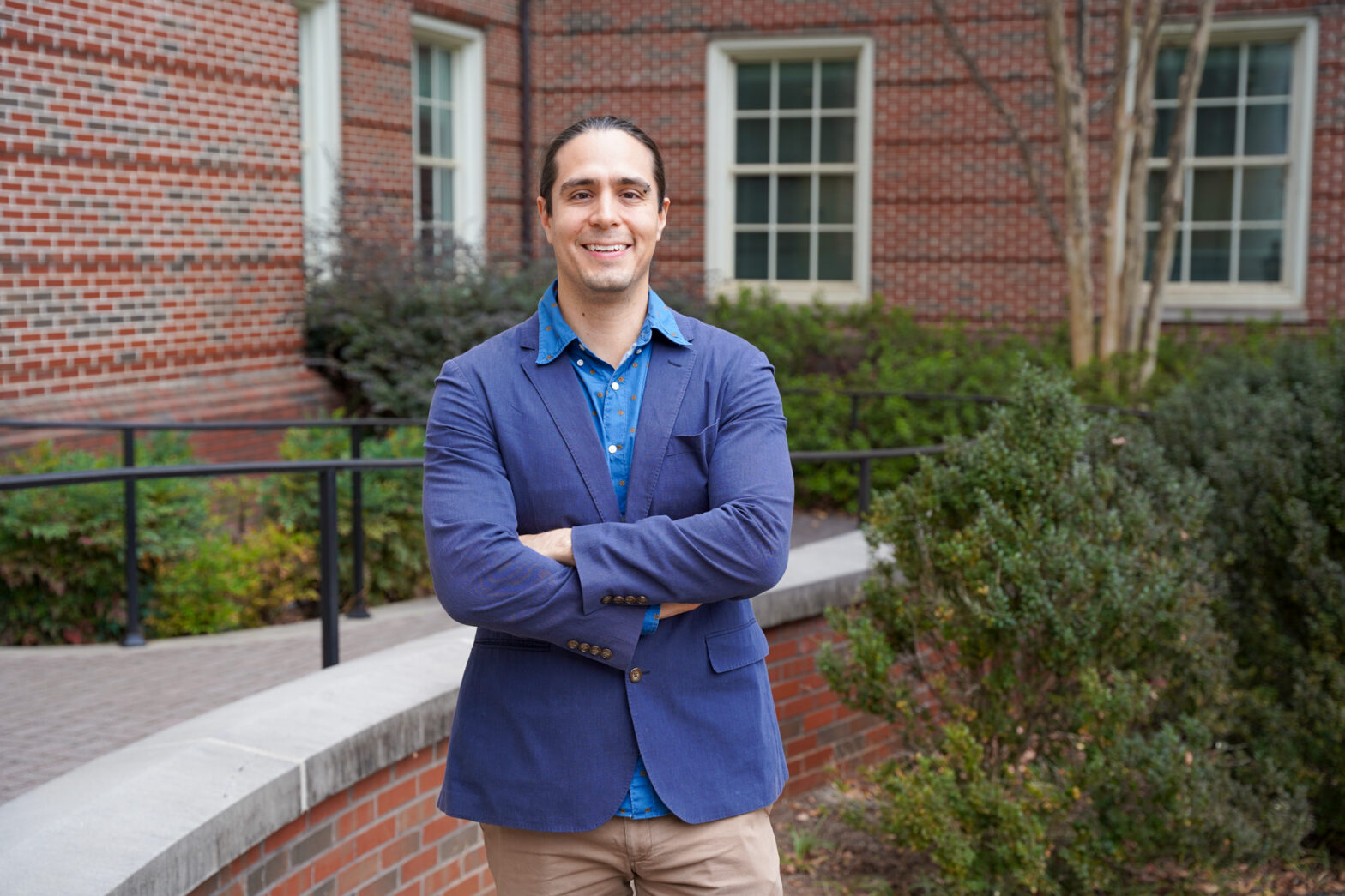Dr. Diego Huet, Assistant Professor in Pharmaceutical and Biomedical Sciences, recently was awarded a National Institutes for Health five-year grant totalling $1,887,500 for his research “Understanding inter-organellar communication in apicomplexan parasites.” The end product of his work has promising public health implications. Through the research, Dr. Huet and his lab hope to provide opportunities to fight against parasitic diseases, such as malaria and toxoplasmosis, by opening doors to the design of novel anti-parasitic therapies.
Dr. Huet explained the premise of his research. “Within the cell, different compartments—called organelles—communicate with each other. This communication is essential and keeps the entire cell working properly. We know that organelles interact with each other via specialized regions, called membrane contact sites (MCSs). MCS interactions are created via proteins, which physically link organellar membranes to each other. This provides a platform in which organelles can exchange metabolites, signaling molecules and lipids. Figuratively speaking, organelles can lean in for a whisper when close enough, sharing information directly. However, most of what is known about MCSs comes only from a handful of well-studied model organisms, particularly yeast and mammals. We know little about the composition and role of MCSs in other organisms, and that restricts our understanding of inter-organellar communication to only a small group of select life forms.”
He continued, “To tackle this problem, our laboratory received this NIH grant to study the function and composition of MCSs in a divergent group of organisms called apicomplexans. Compared to yeast and mammals, apicomplexans have a higher number of organelles. How do they manage to efficiently communicate with each other? Several members of this group also cause diseases of medical and veterinary importance, such as malaria and toxoplasmosis. Our research will help us understand how apicomplexan organelles communicate with each other, expanding our MCS knowledge towards less well-studied organisms. Additionally, identifying proteins involved in apicomplexan-specific MCSs could provide opportunities to design strategies to disarm apicomplexan parasites.”
The grant is a Maximizing Investigators’ Research Award (MIRA) (R35) from the NIH, which allows funding to be efficient by providing investigators with greater stability and flexibility, thereby enhancing scientific productivity and the chances for important breakthroughs.
Dr. Huet, who also is a member of the Center for Tropical and Emerging Global Diseases (CTEGD), recently was featured in a UGA Research story, Diego Huet zeroes in on parasite that affects thousands each year. The story, written by Donna Huber of the CTEGD, discusses his work with Toxoplasma gondii, a parasite that is carried by cats and belongs to the apicomplexan group. Read the full story here.


